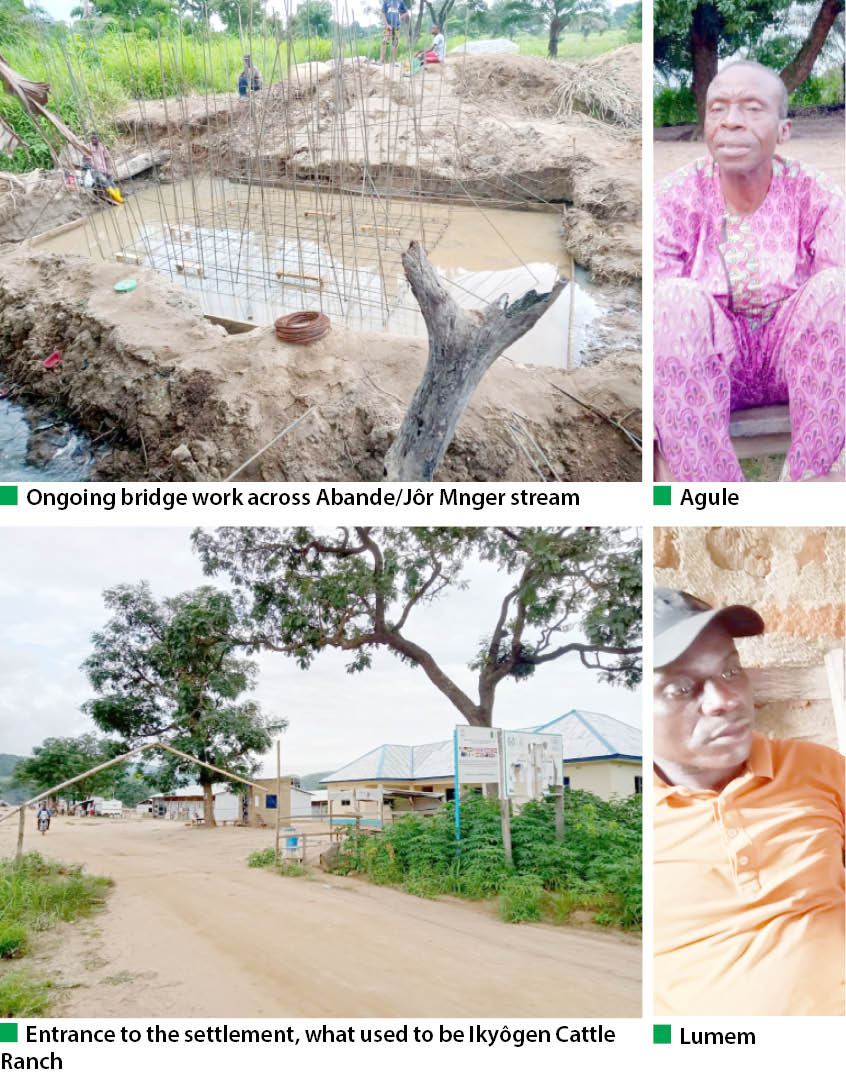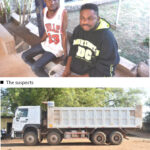Undoubtedly, Ikyôgen Cattle Ranch remains one of the best legacies of late Governor Aper Aku’s administration in Benue State before the government was truncated by the military coup in 1983.
Aku, the first civilian governor of Benue State, had during his about four years, three months reign (completed his first tenure and kicked out by military few months into the second term) established multiple industries to ease the development of the state, some of which include, the Taraku Oil mill, Otukpo Burnt Bricks, Benue Cement Company, as well as Ikyôgen ranch among others now listed for privatisation.
- PODCAST: Intimacy In Marriage: What Is Your Love Language?
- Soldiers beat taxi driver to death in Jos
Over the years, some of the viable legacies of the late governor whom admirers referred to as, ‘the man who saw tomorrow’, became abandoned by successive administrations in the state, a development which recently necessitated the current Benue State government to put up 25 of its moribund assets for sale.
The Ikyôgen cattle ranch, located in Kwande Local Government Area, falls into the category of the moribund property that the government considered to bring back to life again through privitisation.
The Ikyôgen ranch, eclipsed by the ever-breathtaking Mount Vandetum and immersed by the Avenga stream, provides ideal serenity for animal grazing.
Indeed, it used to be a tourist site and still would be if revived. The ranch in its hey days served the protein needs of the people of the state and the country in general as patronisers trooped in from different parts of the country to either buy or sell and in some cases, they came on sightseeing.
The ranch, in addition, provided a farm house for staff of the ranch and the Ikyôgen tourist village.
Today, however, the story is no longer the same as Ikyôgen has overtime metamorphosed into a rural settlement alongside its decaying resort. The resort was developed following the establishment of the ranch.
There is also a unique waterfall at the Ikyôgen ranch said to be modelled after the famous Obudu cattle ranch situated in Cross River State. With its beautiful hills, lush green vegetation, and mild weather condition, the ranch is home away from home for holiday makers if put to use.
But, for over three decades, Ikyôgen cattle ranch has been abandoned and now serves as farm land for the host community, a dream farfetched from the founder’s motive.
A government official who preferred not to be named, told our correspondent that when the late governor first established the ranch, exotic cattle were imported from outside the country and kept in the place.
“The place was a beehive of commercial activities. The animals, including cows, at the ranch were foreign breed and very big in sizes. But after the military took over power, the next administrator of the state didn’t pay attention to the ranch.
“And that was how that beautiful idea was crippled. Now, the government wants to give it out for proper use. I believe if given to the right people, the ranch would become a money spinner for the state,” the official said.
Our correspondent recalled that in 2019, the Benue State government through the State Emergency Management Agency (SEMA) allocated a space within the ranch as a refugee camp and over 60,000 Cameroonian refugees were relocated to the site from Anyake, also in Kwande Local Government Area. Notably, Kwande shares an international boundary with the Republic of Cameroon.
Presently, the ranch is among 25 moribund companies put up for sale by the Benue State government and there had been mixed feelings from the public on the privitisation plan as some people feared that the move might end in wrong hands.
For now, the United Nations High Commissioner for Refugees (UNHCR) is supporting refugees in building permanent structures at the Ikyôgen settlement after they were moved from the first settlement at Anyake.
Apparently, the refugees are unaware that their abode has been put up for privatisation.
Lubem Tor, identified as the settlement’s public relations officer, said he is not aware that the ranch is up for privatisation. “I have not been told; nobody has explained it to me. There is a problem we are facing here. The people called SEMA, who are responsible for this settlement don’t disseminate information properly. What you do is give information to the target audience but if you decide to withhold it, what do you expect to achieve?”
Tor added that until they are officially told what next to do, they would continue to remain in their Ikyôgen settlement.
Another Cameroonian refugee taking shelter with her husband and two children at the settlement, Priscilla Abine, also not aware of the new development, goes up the Mount Vandetum to farm every other day.
Though looking forward to when the conflict in Cameroon will end so her family could go back to their country, however thinks government wouldn’t just abandon them (refugee) when eventually the ranch, which houses the settlement is given to a new ownership.
When contacted, the SEMA boss, Dr. Emmanuel Shior, who was said to have travelled out of the state, did not pick calls to clarify the fate of the refugees in the event the state government finally hands off the ranch.
Similarly, the Kindred Head of Uber/Kyule in the area, Chief Ortar Saaôndo Agule, also denied knowledge of the privatisation plan of the state government.
“If you ask me, I would have said don’t privatise the companies Aku established; let them be there for our development. It is no longer development if you privatise them,” Agule said.
He would have prefered a handover to the locals, if government can no longer own it. “We don’t have excess land and it is sufficient that we are farming on the land. And so, let them allow us to continue to farm on it. After all, we are farmers,” he added.
Agule felt concerned that crop farmers are having issues with herdsmen and should the ranch end up in their hands, the problem would be brought closer to him.
“We have problems with herdsmen and I’m afraid if one of them buy off the ranch and it turns into a sour relationship, what would we do? This is my fear. If there are problems, I will no longer have peace.
“Therefore, let the government forgo the idea so that if the refugees return to their country, we will be cultivating our field. I wouldn’t welcome the idea of someone else bringing cattle here. Even now that it is not sold to them, we are not having it good. If it is sold to them what will be our fate? That’s my fears,” he said.
Agule maintained that once the refugees return to their home country, the place can be used to establish a tertiary institution. This he believes will help young people in his community to access tertiary education. It will also save them the stress of travelling to other locations for education.
The monarch further disclosed that his people had initially resisted the idea of relocating the refugees to the ranch and it only took his persuasion to have them change their minds.
His subjects’ argument, according to Agule, was that the purpose for the site was ranching and not for refugees, “however, I looked at it differently. I tried to let them see the benefits of the development.
“I told them that though it had been abandoned for close to 35 years now, government doesn’t turn its back on its programmes forever. And for anything it does, there are reasons. So, rather than continue to lie fallow, they should let the government do what it wanted.
“Now, I can tell you that with the camp, UNHCR is making efforts to solve some of our challenges. They are constructing a bridge as you can see, they have taken over our burden of school fees in two basic schools, they have provided water, constructed a road to the camp and other benefits.
“My people too have now seen the benefits and there are no more problems.”
The traditional head however succumbs, saying, “if government decides to sell the ranch, he can’t stop it.”
Meanwhile, a resident who preferred anonymity, said he once saw people who walked up the mountain and he learnt that they came to inspect the place. Then, he had asked if the present government was about selling assets.
“The place was abandoned except that we used to farm there. But now, with the coming of refugees, we are getting some benefits. Like me, I now have a Jacto (knapsack sprayer). UN is empowering people in different ways. And now, they want to sell it.
“That land was given to government when the population was not much. But population has grown. It won’t help if they sell it,” he posited.
On whether the ranch will be retained for animal husbandry after its privatization, the state government has clearly provided answers while it also stated in the advertorial on a national newspaper that the ranch will be privatise.
State Commissioner of Industries and Cooperatives, Barrister Merga Kachina, in a text message response to our correspondent simply stated, “By our publication in The Nations Newspaper of August 16, 2021, the ranch is for privatization, not concessioning. The outfit is a ranch and it is to be used as such.”
In the meantime, traditional rulers and all 23 LG council chairmen in the state have lent their support for Governor Samuel Ortom’s administration to privatise, sell or concession the 25 government-owned enterprises currently put up for public buyers.
They threw their weight behind the idea reached during a recent meeting held in Government House Makurdi with Governor Ortom who assured that the moribund enterprises if revived by competent individuals or groups, would provide employment opportunities and boost the economy of the state.
Ortom had explained that the meeting resolved to put the interest of people of the state first in the intended privatisation, stressing that Benue people would have the right of first refusal in the whole exercise.

 Join Daily Trust WhatsApp Community For Quick Access To News and Happenings Around You.
Join Daily Trust WhatsApp Community For Quick Access To News and Happenings Around You.


